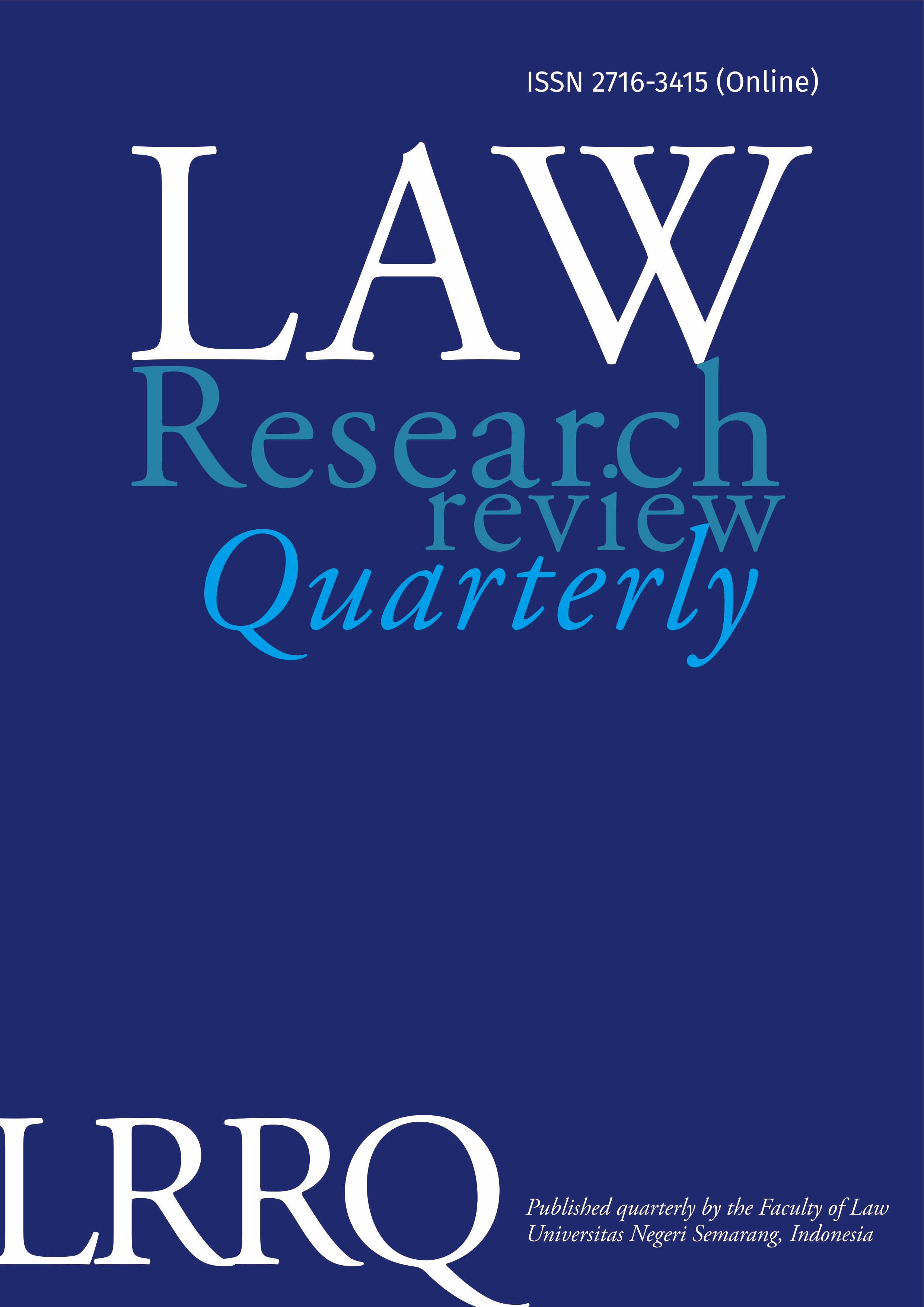The Relevance of Presidential Threshold Implementation in the 2024 Concurrent Elections
Main Article Content
Abstract
The fortification of Indonesia's presidential system ensued through the amendment of the 1945 Constitution spanning from 1999 to 2002. This consolidation of the presidential system is exemplified by the discontinuation of the President's status as a mandatary of the People's Consultative Assembly, aligning with the nation's commitment to establish a democratic rule of law. The President, as the head of government, is now directly elected by the populace, with the inaugural direct presidential election taking place in 2004. Within this electoral process, a stipulated criterion known as the Presidential Threshold is applied. In the upcoming 2024 election, the maintenance of the presidential threshold dictates that a pair of presidential candidates proposed by a political party or an amalgamation of political parties must meet specific requirements. These include obtaining at least 20% of the total seats in the Regional Representative Council (DPR) or securing 25% of the valid votes nationally in the preceding DPR member election. While the implementation of the presidential threshold in Indonesian elections has elicited both support and criticism, proponents argue that it streamlines political parties, bolstering the presidential system and fostering government stability, particularly in the interplay between executive and legislative institutions. Conversely, detractors contend that the reliance on votes from the previous election for the application of the presidential threshold in simultaneous elections warrants reconsideration.
Article Details

This work is licensed under a Creative Commons Attribution-ShareAlike 4.0 International License.
All writings published in this journal are personal views of the authors and do not represent the views of this journal and the author's affiliated institutions. Author(s) are retain the copyrights of the Article. However, before publishing, it is required to obtain written confirmation from Author(s) in order to ensure the originality (Author Statement of Originality). The statement is to be signed by at least one of the authors who have obtained the assent of the co-author(s) where applicable.This work licensed under a Creative Commons Attribution-ShareAlike 4.0 International (CC BY-SA 4.0)
References
Asshiddiqie, J. (2005). Constitution and Constitutionalism. Jakarta: Constitution Press.
Asshiddiqie, J. (2010). Introduction to the Science of Constitutional Law. Jakarta: PT Raja Grafindo Utama.
Fadjar, A. M. (2009). Democratic and Quality Elections: Legal Resolution of Electoral Violations and PHPU. Journal of the Constitution, 4.
Isra, S. (2018). Indonesian Government System. Jakarta: PT Raja Grafindo Persada.
Laksono, F. T. (2019). "Analysis of the Constitutional Court's Considerations in Case Number 49/PUU-XVI/2018 concerning Presidential Threshold". Rule of Law, Vol 8 No.1 p.3.
Manan, B. (2014). Understanding the Constitution. Jakarta: PT Raja Grafindo Persada.
Samsudin. (2020). The Smart Book of Elections and Democracy. Bogor: KPU Bogor City.
Sardini, N. H. (2011). Restoration of Elections in Indonesia. Yogyakarta: Fajar Media Press.
Sitepu, P. A. (2012). Political Science Studies. Yogyakarta: Graha Ilmu.
Surbakti, R. (2008). Fundamentals of Political Science. Jakarta: PT Gramedia Pustaka Utama.
Tutik, T. T. (2011). Construction of Indonesian Constitutional Law After the Amendment of the 1945 Constitution. Jakarta: Kencana Prenada Media Group.
